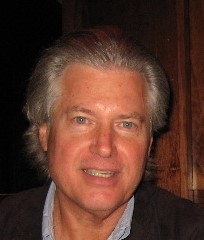
Dyslexia, also known as reading disorder, is a disorder characterized by difficulty reading in individuals with otherwise unaffected intelligence. Different people are affected to different degrees. Problems may include difficulties in spelling words, reading quickly, writing words, "sounding out" words in the head, pronouncing words when reading aloud and understanding what one reads. Often these difficulties are first noticed at school. When someone who previously could read loses their ability, it is known as "alexia". The difficulties are involuntary and people with this disorder have a normal desire to learn. People with dyslexia have higher rates of attention deficit hyperactivity disorder (ADHD), developmental language disorders, and difficulties with numbers. Dyslexia is believed to be caused by the interaction of genetic and environmental factors. Some cases run in families. Dyslexia that develops due to a traumatic brain injury, stroke, or dementia is called "acquired dyslexia". The underlying mechanisms of dyslexia result from differences within the brain's language processing. Dyslexia is diagnosed through a series of tests of memory, vision, spelling, and reading skills. Dyslexia is separate from reading difficulties caused by hearing or vision problems or by insufficient teaching or opportunity to learn.
A reading disability is a condition in which a sufferer displays difficulty reading. Examples of reading disabilities include: developmental dyslexia, alexia, and hyperlexia.
Michael Matthias Merzenich is a professor emeritus neuroscientist at the University of California, San Francisco. His contributions to the field are numerous. He took the sensory cortex maps developed by his predecessors and refined them using dense micro-electrode mapping techniques. Using this, he definitively showed there to be multiple somatotopic maps of the body in the postcentral sulcus, and multiple tonotopic maps of the acoustic inputs in the superior temporal plane.
Marcel Kinsbourne is an Austrian-born pediatric neurologist and cognitive neuroscientist who was an early pioneer in the study of brain lateralization. Kinsbourne obtained his M.D. degree in 1955 and D.M. degree in 1963 at Oxford University, where he served on the Psychology Faculty from 1964, before relocating to the United States in 1967. He has held Professorships in both Neurology and Psychology at Duke University and the University of Toronto, and he has headed the Behavioral Neurology Research Division at the Shriver Center in Boston, Massachusetts. He also served as Presidents of the International Neuropsychological Society and the Society for Philosophy and Psychology.
Catherine Alexandra McBride,, is Choh-Ming Li Professor of developmental psychology at the Chinese University of Hong Kong specializing in the acquisition of early literacy skills. She received her BA in psychology from Oberlin College, Oberlin, Ohio. She received her MA in 1992 and PhD in 1994 from the University of Southern California, and completed a post-doctoral fellowship at Florida State University in Tallahassee, Florida. She has written two books (namely, Children's Literacy Development and Coping with Dyslexia, Dysgraphia and ADHD: A Global Perspective and co-edited three others. She is currently the Past-President of the Society for the Scientific Study of Reading.

John Morton, OBE, FRS is an emeritus professor at the Institute of Cognitive Neuroscience and was the director of the former Medical Research Council (MRC) Cognitive Development Unit (CDU) at University College London.
Brian Lewis Butterworth FBA is emeritus professor of cognitive neuropsychology in the Institute of Cognitive Neuroscience at University College London. His research has ranged from speech errors and pauses, short-term memory deficits, dyslexia, reading both in alphabetic scripts and Chinese, and mathematics and dyscalculia. His book The Mathematical Brain has been translated into four languages. He was Editor-in-Chief of Linguistics (1978–1983) and a founding editor of the journals Language and Cognitive Processes and Mathematical Cognition. He is a Fellow of the British Academy.
Dyslexia is a reading disorder wherein an individual experiences trouble with reading. Individuals with dyslexia have normal levels of intelligence but can exhibit difficulties with spelling, reading fluency, pronunciation, "sounding out" words, writing out words, and reading comprehension. The neurological nature and underlying causes of dyslexia are an active area of research. However, some experts believe that the distinction of dyslexia as a separate reading disorder and therefore recognized disability is a topic of some controversy.
Dyslexia is a complex, lifelong disorder involving difficulty in learning to read or interpret words, letters and other symbols. Dyslexia does not affect general intelligence, but is often co-diagnosed with ADHD. There are at least three sub-types of dyslexia that have been recognized by researchers: orthographic, or surface dyslexia, phonological dyslexia and mixed dyslexia where individuals exhibit symptoms of both orthographic and phonological dyslexia. Studies have shown that dyslexia is genetic and can be passed down through families, but it is important to note that, although a genetic disorder, there is no specific locus in the brain for reading and writing. The human brain does have language centers, but written language is a cultural artifact, and a very complex one requiring brain regions designed to recognize and interpret written symbols as representations of language in rapid synchronization. The complexity of the system and the lack of genetic predisposition for it is one possible explanation for the difficulty in acquiring and understanding written language.
Dyslexia is a disorder characterized by problems with the visual notation of speech, which in most languages of European origin are problems with alphabet writing systems which have a phonetic construction.
Educational neuroscience is an emerging scientific field that brings together researchers in cognitive neuroscience, developmental cognitive neuroscience, educational psychology, educational technology, education theory and other related disciplines to explore the interactions between biological processes and education. Researchers in educational neuroscience investigate the neural mechanisms of reading, numerical cognition, attention and their attendant difficulties including dyslexia, dyscalculia and ADHD as they relate to education. Researchers in this area may link basic findings in cognitive neuroscience with educational technology to help in curriculum implementation for mathematics education and reading education. The aim of educational neuroscience is to generate basic and applied research that will provide a new transdisciplinary account of learning and teaching, which is capable of informing education. A major goal of educational neuroscience is to bridge the gap between the two fields through a direct dialogue between researchers and educators, avoiding the "middlemen of the brain-based learning industry". These middlemen have a vested commercial interest in the selling of "neuromyths" and their supposed remedies.

John L. Locke is an American biolinguist who has contributed to the understanding of language development and the evolution of language. His work has focused on how language emerges in the social context of interaction between infants, children and caregivers, how speech and language disorders can shed light on the normal developmental process and vice versa, how brain and cognitive science can help illuminate language capability and learning, and on how the special life history of humans offers perspectives on why humans are so much more intensely social and vocally communicative than their primate relatives. In recent time he has authored widely accessible volumes designed for the general public on the nature of human communication and its origins.

Maryanne Wolf is a scholar, teacher, and advocate for children and literacy around the world. She is the UCLA Professor-in-Residence of Education, Director of the UCLA Center for Dyslexia, Diverse Learners, and Social Justice, and the Chapman University Presidential Fellow (2018-2022). She is also the former John DiBiaggio Professor of Citizenship and Public Service, Director of the Center for Reading and Language Research, and Professor in the Eliot-Pearson Department of Child Study and Human Development at Tufts University.
Hollis Scarborough is an American psychologist and literacy expert who is a senior scientist at Haskins Laboratories in New Haven, Connecticut. She has been a leading researcher in the area of reading acquisition since 1981, and has been involved with efforts to improve US national policy on the teaching of reading.
The dual-route theory of reading aloud was first described in the early 1970s. This theory suggests that two separate mental mechanisms, or cognitive routes, are involved in reading aloud, with output of both mechanisms contributing to the pronunciation of a written stimulus.
April A. Benasich, an American neuroscientist, is the Elizabeth H. Solomon Professor of Developmental Cognitive Neuroscience, director of the Infancy Studies Laboratory at the Center for Molecular & Behavioral Neuroscience (CMBN) and director of the Carter Center for Neurocognitive Research and Professor of Neuroscience at Rutgers University. In addition, she is a principal investigator within the National Science Foundation-funded Temporal Dynamics of Learning Center headquartered at the University of California, San Diego’s Institute for Neural Computation.
Usha Claire Goswami is a researcher and professor of Cognitive Developmental Neuroscience at the University of Cambridge, a Fellow of St. John's College, Cambridge, and the director of the Centre for Neuroscience in Education, Downing Site. She obtained her Ph.D. in developmental psychology from the University of Oxford before becoming a professor of cognitive developmental psychology at the University College London. Goswami's work is primarily in educational neuroscience with major focuses on reading development and developmental dyslexia.
Sandra Blakeslee is an American science correspondent of over four decades for The New York Times and science writer, specializing in neuroscience. Together with neuroscientist V. S. Ramachandran, she authored the 1998 popular science book Phantoms in the Brain: Probing the Mysteries of the Human Mind.
Iris Berent is an Israeli-American cognitive psychologist. She is a Professor of Psychology at Northeastern University and the director of the Language and Mind Lab. She is among the founders of experimental phonology—a field that uses the methods of experimental psychology and neuroscience to study phonological competence. She has also explored the role of phonological competence in reading ability. and dyslexia. Her recent work has examined how laypeople reason about innate knowledge, such as universal grammar.

Sally Shaywitz is an American physician-scientist who is the Audrey G. Ratner Professor in Learning Development at Yale University. She is the co-founder and co-director of the Yale Center for Dyslexia & Creativity. Her research provides the framework for modern understanding of dyslexia.




